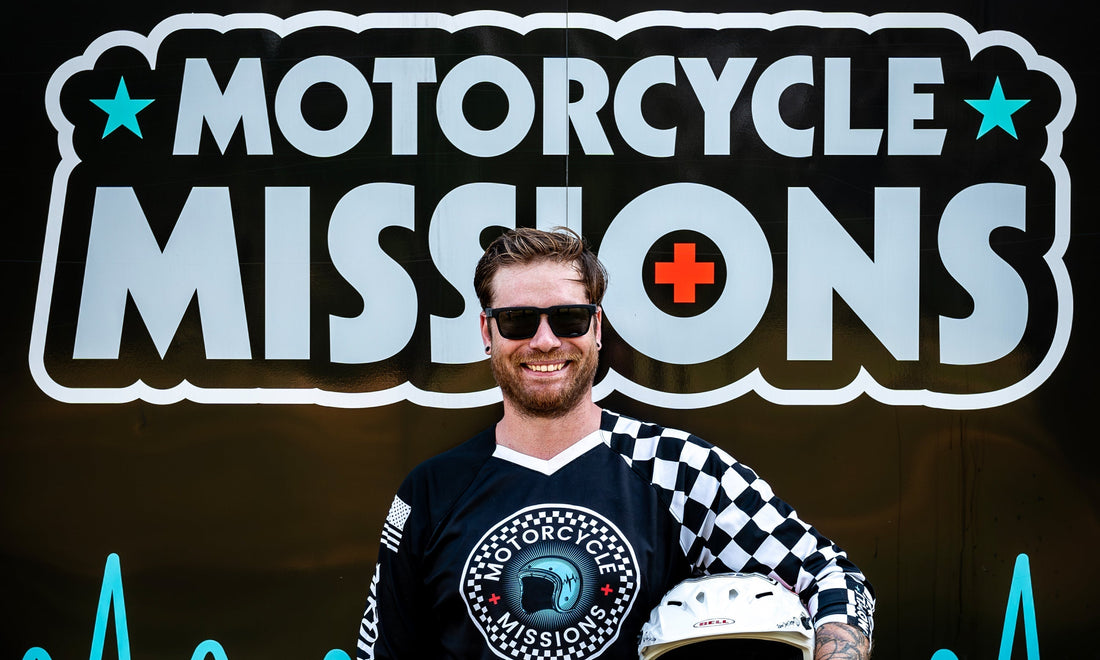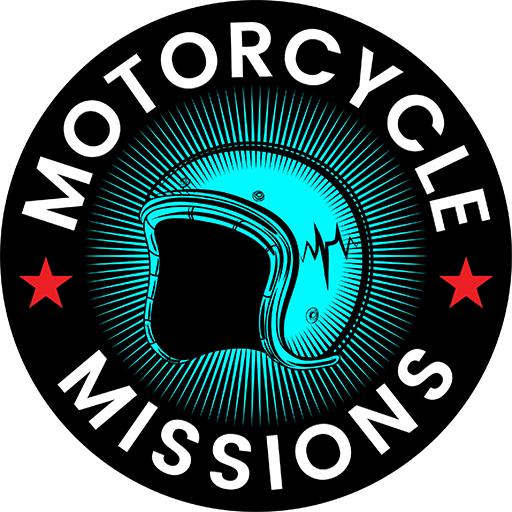
Motorcycles Save Lives: Mike Angerstein
Share
By: Johnny Killmore
It's a strange phenomenon that those who choose to serve their community often have a hard time finding a community of their own. Military members and first responders both answer a call to put other people's needs ahead of their own, but are often the last people to ask for help themselves. It's as if a career path that requires selfless service attracts people who have a hard time serving themselves.

While some folks find community at church or a car club or even the corner deli, those suffering from the withdrawal and anxiety of PTSD often choose to self-isolate. An excellent solution for those types of people is participating in group activities that focus on helping others. While there are several ways to do that, for those who already love motorcycles, Motorcycle Missions offers ready-made ways to find and build community.

In fact, community is central to all of Motorcycle Missions’ programs. Take Mike Angerstein for instance, whose introduction to Motorcycle Missions was a motocross riding clinic. After spending a day riding dirt bikes on a track with other veterans and first responders, he found out about Motorcycle Missions’ welding clinics. This was a great way for him to give back to the charity that had helped him.

“I participated in the motocross clinic, then found out about the welding class. I'm a career welder, and started volunteering right off the bat,” says Mike. “One thing I've noticed with many participants is that they keep coming back. They want to be a part of this community—our Motorcycle Missions family.” Wanting to be of service is a common theme for those who choose service as a career path, even when it comes to their own healing process.

Whether on the trail, the track, or the shop floor, working in a group that shares a common goal is a way for many servicemen and women to help themselves. There's just something that happens when you put a group of strangers together who all have a similar background in emergency response. The term “fast friends” is used to describe the way a group can immediately feel at home together, because a sort of baseline understanding exists before the group ever meets. The concept is somewhat more literal when it comes to sharing a day at the track, but the figurative meaning is there too.

Finding “our people” is something we all do, usually starting in our early teens. It's an ongoing process, as we evolve as individuals and keep seeking a path through life that feels rewarding. But negative experiences that lead to trauma can cause us to move inward, avoiding situations that remind us of that past trauma. And adults often find it harder to connect than teenagers.

But when surrounded by a group of like-minded people working toward a goal that benefits the entire group, it's much easier for people to connect. Mike notes, “I love Motorcycle Missions because we build an entire community behind it. The best part is watching these men and women come in—whether or not they have experience on the motorcycle—and watching them grow. That's the most beautiful thing in the world to me. You see these people come in, they're clammed up, just completely closed off, and you see them blossom into this beautiful human being. You get to learn who they are very quickly, and it's one of the most wonderful things I've seen in my life.” Regardless of your individual struggles, spending time around people who know your type of struggle is restorative, and can cause a chain reaction of positive experiences, self-inquiry, and personal growth. It's better than sitting at home, ruminating, that's for sure.

Yet there's no need to become a volunteer and stay on for years like Mike has. Heck, you don't even need to have a motorcycle license (though Motorcycle Missions will help you get one). Riding off-road or learning your way around a toolbox and a shop floor pulls you out of your head and in with a group of people who get you, and who share a love of motorcycling.
Larger charities often run into a problem where they can reach more people, but can’t stay connected with them beyond their big events. Motorcycle Missions is special in that way: there is no barrier between those receiving the programs and those providing them, which creates a much stronger pathway to healing than a single day on a dirt bike can provide. Because the mission is helping people find a missing sense of community, they approach things differently, making sure program participants don’t return home to self-isolation and loneliness. What they do is fun, but it’s also meaningful. A day on the track often leads to becoming a part of the Motorcycle Missions family.
